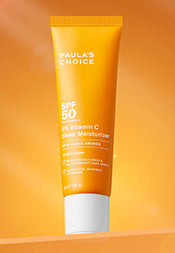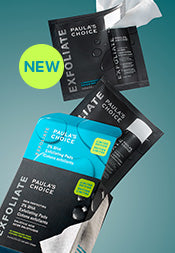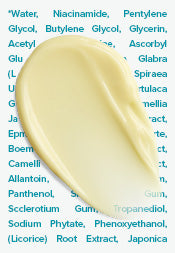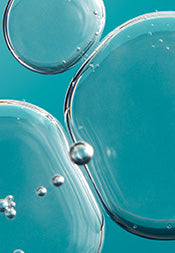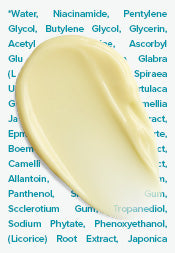Which Skincare Products Are Safe During Pregnancy?
Pregnancy is an exciting time, but it often comes with many skincare challenges. Most pregnant people wonder which skincare products are fine to use and which ones aren’t. Is using salicylic acid during pregnancy safe? What about glycolic acid? Can we use Benzoyl peroxide for acne? Is retinol safe to use during pregnancy? The answers might surprise you!
First, it’s always important to check with your physician and discuss the specific skincare products you want to use. Fortunately, most skincare products, such as facial cleansers, skin toners, face moisturizers, eye creams, exfoliants, and lip scrubs that don’t contain over-the-counter ingredients regulated by the United States FDA and ASEAN HSA, are safe for use throughout pregnancy. However, pregnancy skincare involving topical prescription products, certain over-the-counter skincare ingredients, and retinol is a different issue.
Using skincare products during pregnancy
Misinformation about pregnancy skincare creates frustration and confusion for pregnant people during a time they should be enjoying to the fullest. To get some much-needed clarification around pregnancy skincare products, we consulted the American College of Obstetricians and Gynaecologists regarding the ingredients we’re asked about most. Here’s what they had to say:
-
Benzoyl peroxide is an excellent ingredient to control acne and, in low concentrations (5% or less), is considered the best acne treatment safe for pregnancy.
-
Salicylic acid (BHA) is a superior exfoliant for the skin, and the small percentages used in skincare are considered low risk to use while pregnant. Look for concentrations between 1–2% and reserve use for small areas, such as the face, when needed.
-
You can also consider using glycolic acid or lactic acid (AHA) exfoliants during your pregnancy. What about in-office AHA or BHA peels? AHA peels are preferred if the peel is to be applied over a large area of the body.
-
Sunscreen actives are known to be safe during pregnancy. The American College of Obstetricians and Gynecologists hasn’t found any of the alleged fears about sunscreen ingredients substantiated by medical or animal research. Daily sunscreen use is strongly recommended by dermatologists. If you find your skin is more sensitive during pregnancy, consider using sunscreen for face with only the mineral actives of titanium dioxide and/or zinc oxide, as both are non-irritating.
-
Tranexamic acid is a newcomer to skincare that isn’t known to be a problem for topical use on skin with hyperpigmentation while pregnant; however, we don’t have enough data yet for it to be recommended without reservation. It’s another ingredient to discuss with your physician.
-
Azelaic acid via topical prescription is considered safe for use during pregnancy and has good research showing it can improve brown skin discolourations plus help with breakouts and visible symptoms of rosacea.
-
Anti-aging products with vitamin C, niacinamide, hyaluronic acid, and peptides are generally considered safe for use during pregnancy. There’s no research proving they’re a problem for topical use. But if you’re uncertain about starting a new anti-aging product or a combination of ingredients, check with your physician and follow their advice.
-
Avoid prescription retinoids (renova, retin-A, differin, tazorac, and generic tretinoin) and over-the-counter products with retinol due to their relation to prescription retinoids. Consider switching to an anti-aging serum that does not contain retinol or its derivatives (retinyl retinoate, retinaldehyde, or hydroxypinacolone retinoate).
-
Avoid hydroquinone (which is available by prescription only) during pregnancy and while breastfeeding. The same caution goes for the ingredient arbutin and derivatives such as alpha-arbutin because both break down to hydroquinone on the skin. Instead, look to products that contain niacinamide and various forms of vitamin C.
-
Prescriptions for other skin concerns: Your doctor will be able to advise you on which topical medications are suitable for use during pregnancy, how they should be used, and whether the benefits outweigh the risks (if any).
Note that we at Paula’s Choice Skincare, strongly recommend you to share every skincare product (especially the prescription and over-the-counter drug products) you’re planning to use while pregnant with your physician, and only proceed if they approve.
The information above isn’t meant to be exhaustive, but it should give you a clear idea of what’s safe to use during pregnancy and what should be avoided. We hope you’re feeling relieved that you can achieve your skincare goals during pregnancy!
Disclosure: This article is not intended to replace medical advice given to you by your physician. Only they know your medical history and can offer advice that is appropriate to your individual needs. Your doctor should make all final decisions regarding skincare products and ingredients during pregnancy.
Learn more about skincare during pregnancy.
Shop Paula Choice’s pregnancy safe skincare products.
References for this information
Journal of Clinical and Aesthetic Dermatology, February 2022, pages 49-57
International Journal of Hygiene and Environmental Health, Volume 227, June 2020, ePublication
Journal of Perinatology, July 2017, pages 778-781
Journal of Epidemiology and Global Health, March 2017, pages 63-70
International Journal of Women’s Dermatology, March 2017, pages 6-10
Dermatologic Therapy, July-August 2013, pages 302-311
Canadian Family Physician, June 2011, pages 665-667
Precarie International, June 2005, pages 100-101
American Journal of Clinical Dermatology, Volume 4, 2003, pages 473-492
Teratology, May 2001, pages 186-192


